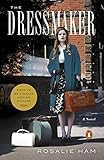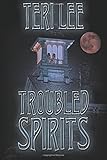 The theme of surrendering self is just one topic explored through thoughtful dialogue and prose. The characterisation of a sensitive topic demonstrates how it is possible that horrendous things happen, and even people living under the same roof don’t realise what’s going on. We see first-hand why victims sometimes can’t speak out until many years after the event.
The theme of surrendering self is just one topic explored through thoughtful dialogue and prose. The characterisation of a sensitive topic demonstrates how it is possible that horrendous things happen, and even people living under the same roof don’t realise what’s going on. We see first-hand why victims sometimes can’t speak out until many years after the event.
Interview with with Emily Jenkins and Paul O. Zelinsky

 The author and illustrator of Toys Meet Snow talk about their new picture book and its relationship to the chapter books and how different the illustration process was, about the author/illustrator working relationship, about where the idea for the book came from, about the characters and why they resonate with readers, ideas for parents of reluctant readers, and lots more.
The author and illustrator of Toys Meet Snow talk about their new picture book and its relationship to the chapter books and how different the illustration process was, about the author/illustrator working relationship, about where the idea for the book came from, about the characters and why they resonate with readers, ideas for parents of reluctant readers, and lots more.
A review of Heal Your Gut by Lee Holmes
 I didn’t realize until reading Heal Your Gut just how critical good gut health is, and how integrated gut health is with overall health. For people who are really suffering with gut issues, and I know from personal experience that this is not fun and can be debilitating, following Holmes’ full protocol can be life changing. For everyone else, this is a very useful resource that will help improve the diet, improve gut function and overall well-being, while providing a treasure trove of easy to follow gut-friendly recipes suitable for the whole family.
I didn’t realize until reading Heal Your Gut just how critical good gut health is, and how integrated gut health is with overall health. For people who are really suffering with gut issues, and I know from personal experience that this is not fun and can be debilitating, following Holmes’ full protocol can be life changing. For everyone else, this is a very useful resource that will help improve the diet, improve gut function and overall well-being, while providing a treasure trove of easy to follow gut-friendly recipes suitable for the whole family.
A review of The Hour of Silvered Mullet by Jean Kent
 This work is Ecopoetry at its most astute—where nature is primary, and human perception becomes transfigured by the encounter. All or nearly all of the poetry is set in The Hunter Valley, NSW (Australia), and many poems revisit these places from different perspectives, different stories, and different times of day, life, emotional contexts.
This work is Ecopoetry at its most astute—where nature is primary, and human perception becomes transfigured by the encounter. All or nearly all of the poetry is set in The Hunter Valley, NSW (Australia), and many poems revisit these places from different perspectives, different stories, and different times of day, life, emotional contexts.
A review of The Dressmaker by Rosalie Ham
 Readers enjoy seeing the triumph of an underdog, particularly one who has been good to her persecutors and has given them a second chance to treat her decently. Rosalie Ham’s witty writing and clever structure make this novel exceptional. The division of the book into four sections: Gingham, Shantung, Felt and Brocade, is not just a cute way of furthering the sewing motif; rather, the names are symbolic.
Readers enjoy seeing the triumph of an underdog, particularly one who has been good to her persecutors and has given them a second chance to treat her decently. Rosalie Ham’s witty writing and clever structure make this novel exceptional. The division of the book into four sections: Gingham, Shantung, Felt and Brocade, is not just a cute way of furthering the sewing motif; rather, the names are symbolic.
Interview with Mary E Martin
 As part of her worldwide blog tour, the author of The Trilogy of Remembrance talks about the trilogy form and what draws her to it, about her characters and their extra-fictional lives, about the link between law and fiction, the relationship between truth and fact, what draws her to the art world, and lots more.
As part of her worldwide blog tour, the author of The Trilogy of Remembrance talks about the trilogy form and what draws her to it, about her characters and their extra-fictional lives, about the link between law and fiction, the relationship between truth and fact, what draws her to the art world, and lots more.
A review of Troubled Spirits by Teri Lee
 Troubled Spirits is good, clean fun that delves into the world of modern ghost hunting with two, more than capable, female protagonists that take care of themselves and the big bad in town, on their own, in true Buffy the Vampire Slayer fashion. The way Harmony and Annie and the gang handle the ghosts and themselves is more than enough to make Zak Baggins proud.
Troubled Spirits is good, clean fun that delves into the world of modern ghost hunting with two, more than capable, female protagonists that take care of themselves and the big bad in town, on their own, in true Buffy the Vampire Slayer fashion. The way Harmony and Annie and the gang handle the ghosts and themselves is more than enough to make Zak Baggins proud.
Interview with Andrew Joyce
 The author of Molly Lee talks about his work, his new novel, his main character, why he writes, how to deal with writer’s block, his favourite authors, advice for aspiring authors, and more.
The author of Molly Lee talks about his work, his new novel, his main character, why he writes, how to deal with writer’s block, his favourite authors, advice for aspiring authors, and more.
Carolyn Martinez talks about Finding Love
Carolyn Martinez, author of Inspiring IVF Stories and Finding Love: 7 Things you Need to Know Before You Date Again reads from and talks about her new book, about her path to becoming an author, about her writing process, the…
A review of Go Set A Watchman by Harper Lee
 To me, Go Set a Watchman is a worthwhile work, although I wish Ms. Lee had been more precise about the historical context and had made Jean Louise a little less naive. Stylistically, the novel is dated, but that makes it authentic to the place and time in which it is set. Given the shocking instances of racial violence in the United States this past year, it would seem that Go Set a Watchman is relevant to our times.
To me, Go Set a Watchman is a worthwhile work, although I wish Ms. Lee had been more precise about the historical context and had made Jean Louise a little less naive. Stylistically, the novel is dated, but that makes it authentic to the place and time in which it is set. Given the shocking instances of racial violence in the United States this past year, it would seem that Go Set a Watchman is relevant to our times.